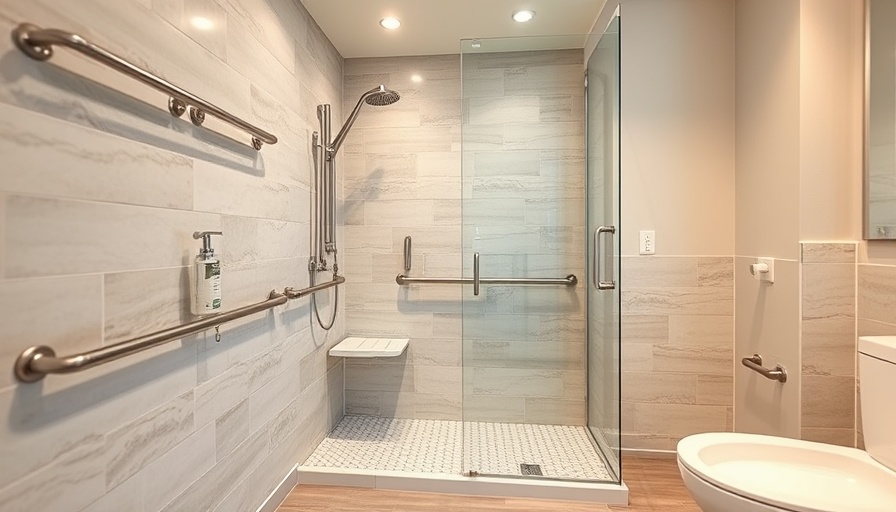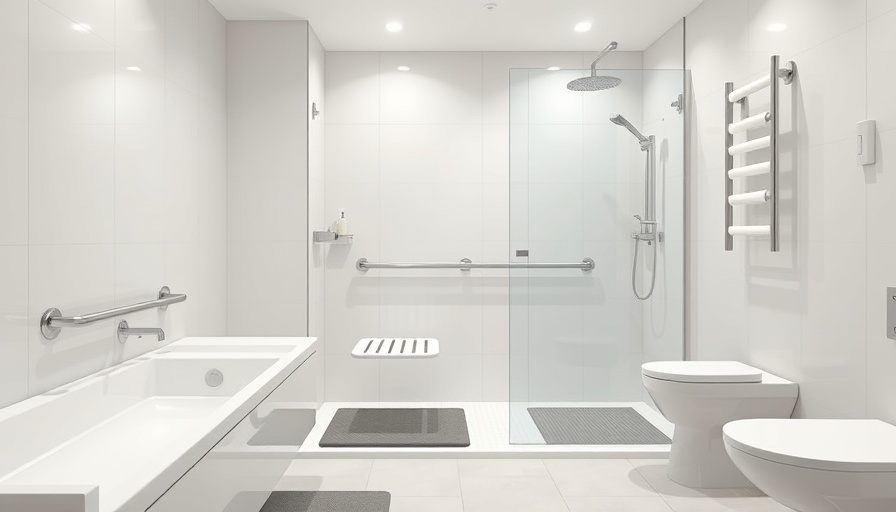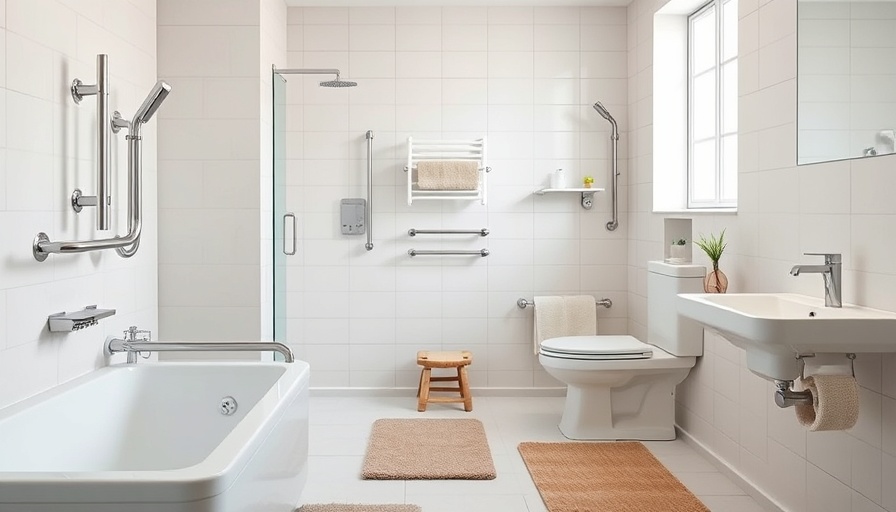
Showering Safety: A Growing Concern for Seniors
Navigating the bathroom can present unique challenges, particularly for seniors. Showering, a daily routine for most, becomes a significant risk factor as age-related conditions affect mobility and balance. Statistics reveal that slip-and-fall incidents are among the leading causes of injury among older adults, emphasizing the importance of shower safety. Understanding these challenges can empower caregivers and seniors alike to transform their bathing experience into something that's secure and enjoyable.
The Role of Walk-In Showers in Enhancing Independence
Walk-in showers represent a compelling solution for seniors, providing not only accessibility but also a pathway to maintaining independence. Traditional bathtubs can be difficult to access, often requiring awkward maneuvers that may lead to falls. In contrast, walk-in showers eliminate barriers, enabling easier entry and exit, especially for those with mobility issues. It’s crucial to customize these showers to cater specifically to seniors' needs, ensuring that safety remains at the forefront.
Key Features that Make Walk-In Showers Safer
When designing a walk-in shower for seniors, several essential features must be considered to enhance safety and usability:
- Slip-Resistant Flooring: A textured flooring material or specialized coating can dramatically reduce the possibility of slips. It's advisable to steer clear of shiny finishes that can be hazardous when wet.
- Grab Bars: Strategically placed grab bars provide vital support during entry and exit. They should be securely anchored to withstand a user's weight, giving the much-needed confidence to seniors as they shower.
- Shower Seating: Including a shower seat permits seniors to bathe with ease. Built-in benches or portable chairs offer flexibility and comfort while ensuring that seniors can sit down without fear of falling. The height of these seats should accommodate various mobility levels.
- User-Friendly Shower Controls: Controls that are intuitive and easy to operate can help mitigate the risk of accidents due to sudden changes in water temperature or pressure, which can be disorienting for seniors.
Temperature Management for Safer Showering
Temperature control is critical in preventing scalding, a serious risk for seniors who may have diminished sensitivity to extreme temperatures. Installing anti-scald valves or thermostatic mixing valves can provide an added layer of protection. These devices adjust the water temperature to safe levels automatically, allowing seniors to shower confidently without fear of injury.
Communicating with Caregivers: The Importance of Ongoing Support
For seniors, having open communication with caregivers is invaluable. Caregivers need to be aware of their loved ones' capabilities and limitations, ensuring that the shower setup meets these needs. In addition, regular discussions can help share concerns about safety or changes in health that may affect bathing routines.
Practical Tips for Enhancing Shower Safety
Here are some practical measures to further ensure safety in the shower:
- Consider using non-slip mats outside of the shower to prevent slipping when exiting.
- Ensure that the lighting in the shower area is adequate, helping to avoid falls caused by poor visibility.
- Educate seniors on how to use their showers effectively, reinforcing their confidence in managing their hygiene independently.
- Install a handheld showerhead, which allows for easier rinsing while seated or standing, providing mobility options within the shower.
The Road Ahead: Adapting to Changing Needs
As health and mobility change, the need for bathroom modifications may evolve. It's important for families and caregivers to recognize when updates are necessary, ensuring continued safety for their loved ones. Regularly reassessing bathroom safety features not only addresses current requirements but also anticipates future needs.
Ultimately, creating a safe showering environment for seniors is not just about the features of the walk-in shower itself; it encompasses a holistic approach. By adapting to changing needs and fostering independence, caregivers can significantly enhance the quality of life for seniors, allowing them to maintain dignity and agency in their daily routines.
For those responsible for the well-being of seniors, understanding the intricacies of shower safety is essential. By taking actionable steps and investing in appropriate modifications, families can ensure that their aging family members continue enjoying the simple pleasures of life, like a warm and safe shower.
 Add Row
Add Row  Add
Add 




 Add Row
Add Row  Add
Add 

Write A Comment